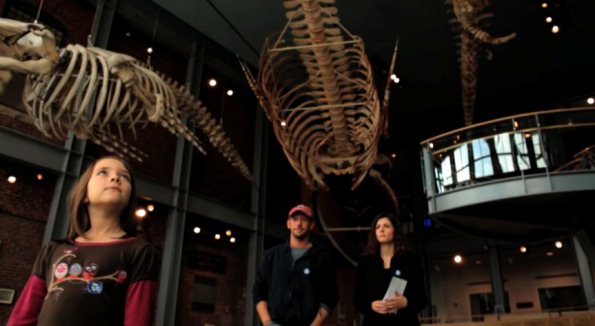Whaling City: An Interview With P.J. Sosko
As the city of New Bedford prepares for the fast-approaching screening of local director Jay Burke’s film “Whaling City” on September 24, NewBedfordGuide.com talked with the film’s star, PJ Sosko, about his work on the film. In addition, he talked about his roots as an actor and where he hopes his career takes him in the future.
New Bedford Guide: What or who originally inspired you to pursue acting as a career?
PJ Sosko: Two things stick in my mind here. First, when I was a kid, I distinctly remember going to see “Hook,” the Spielberg take on “Peter Pan,” and leaving that theater just f***ing happy. I remember (it was strong enough to stay with me all these years), this feeling of how excited and happy the audience was. I want do that: have a room full of strangers feel awesome after seeing a story I just helped to tell. Then in college at the University of Rochester, after quitting cross country because the coach was an a-hole, I decided to audition for this guy that was taking over the theater department, who was from London, and had worked with the RSC and had a very distinguished background. [His name is]  Mervyn Willis. Well, he took me under his wing and cast me in his first production of Dickens’ “Nicholas Nickelby,” all eight hours as Nicholas, and that was the beginning of our mentor/student relationship that lasted through school, a 3-month Russian tour of The Brothers Karamzov, and several productions at La Mama, off-Broadway in New York City, before I branched out on my own to see if anyone else would hire me. As it turned out, Mervyn was not alone in his belief in me, but I’ll never forget the lessons I learned from Mervyn, that little British leprechaun calling out from the darkness of the Todd Theater, “I don’t believe you PJ!” And me trying to find a different way to “be more real.”
Mervyn Willis. Well, he took me under his wing and cast me in his first production of Dickens’ “Nicholas Nickelby,” all eight hours as Nicholas, and that was the beginning of our mentor/student relationship that lasted through school, a 3-month Russian tour of The Brothers Karamzov, and several productions at La Mama, off-Broadway in New York City, before I branched out on my own to see if anyone else would hire me. As it turned out, Mervyn was not alone in his belief in me, but I’ll never forget the lessons I learned from Mervyn, that little British leprechaun calling out from the darkness of the Todd Theater, “I don’t believe you PJ!” And me trying to find a different way to “be more real.”
NBG: Before becoming an actor, how did you make a living?
PJS: Luckily I’ve been able to make a living for quite some time now from all the various sources of employment out there [available] to actors: voice-overs, industrials, commercials, video games, and, of course theater, TV, and film. Before I was able to pay all my bills I was a bartender, but I was the bottle-flipping/flaring/dancing around bartender. I figured if I had to do it, I’d at least make it like “Cocktail,” that silly Tom Cruise movie. It was fun, a great life experience and there were many lessons learned, but I was very happy to tell the latest coke-sniffing club owner to take his job and shove it as soon as I was able.
NBG: Why did you choose the life of an actor?
PJS: Let me put this simply: I love what I do and that alone is infectious to other artists and to audiences. I think the most powerful tool we have is our imagination and this job allows me to wield it in ways that are incredibly powerful. There is a responsibility you have as an artist, without sounding all highfalutin about it, that is often overlooked. There have always been storytellers, from back when it was about painting on walls and grunting about it. [There is] a sense of community, a rare thing shared between the audience and the storyteller, in all its forms, that allows us to leave our own worries and problems and get wrapped up in someone else’s.

Whether it means shared tears or laughter, we need this release and we need to further our understanding of human nature. I get to do that and that is why I chose this life: to help enlighten us about ourselves. People trust me to take them on a journey. I don’t take that lightly. I want it always to be a fun and thought-provoking ride, going places you didn’t necessarily expect. But ultimately, it’s a quest for truth and I’m all in on that quest. Hopefully, “Whaling City” will be an example of that.
NBG: What are some films or TV programs you’ve worked on in the past?
PJS: As far as TV goes, I slowly worked my way up the “Law & Order” ladder. What had been my first job with a couple lines ended with being cast in my third episode as the killer of the episode on a really important show that dealt with abortion in the best way: exploring all sides. I’ve also been on “Royal Pains,” “Gravity,” and also happened to host an Emmy-winning documentary called “Looking to the River.” I just wrapped another indie called “Surviving Family.” And right before I started “Whaling City,” I filmed my first small role in a big feature called “Premium Rush,” directed by David Koepp and staring Joseph Gordon-Levitt and Michael Shannon of “Boardwalk Empire,” as well as a bunch of short films, including the lead in Allan Knee’s “Film Noir.” Allan wrote the original script that “Finding Neverland” was based on.
NBG: Since becoming an actor, can you tell me about one experience so far that stands out to you, for any reason?

PJS: For the last three years or so I’ve been involved with a Docu-play called “ReEntry.” It’s all about the struggle Marines have coming home and assimilating into society, taken from interviews with the real deal. Five actors, each of us play a couple different roles, but it’s direct address so the audience is the interviewer and we’re speaking straight to them, no-holds-barred, about all these true feelings these soldiers have, unedited. It was intense: we went through a boot camp; one of the actors was a Drill Sargent in the Corps for three years, it was a truly amazing experience. We did “ReEntry” off-Broadway and at a couple regional theaters and most importantly we got invited into veteran hospitals and onto actual Marine bases like Quantico to perform for the soldiers. Four-star generals were watching me portray something I had never had a connection to before working on this show.
While at a huge Post-traumatic stress disorder conference in San Diego, in an auditorium filled with about a thousand soldiers of all ranks, their doctors and therapists, and their associated families, two incredible moments occurred. Towards the beginning of the show my character, who is a real ball-buster alpha type with four deployments, who eventually goes through a suicidal episode, is saying in his blunt fashion why he joined the Marines. And I tell you what would seem to be the entire place yelled in unison “OOO-RAH!” [It happened] in a fashion that shook the rafters and me to my inner core. After that show, at a talkback with the audience, a lady got on the mic and professed to me and another actor how we had reminded her of her two sons, both of whom she had lost to the war. I took this moment to leap off the stage and run down to this woman and hug her because I knew everyone in the audience was feeling the same damn thing and I was in the enviable position to do something about it. Sometimes with what we do we get to be kind of transcendent. And when the real thing, people who have actually walked in the shoes you’re trying to portray, come back at you with this overwhelming energy of appreciation and connection and understanding, well, anyone who tries to tell me that there is no power in theater can pretty much kiss my ass.
NBG: Here’s my final question before we move onto your experience with “Whaling City.” Where do you hope to take your career?
PJS: Ideally I want to continue to work in all mediums. I’ll never stop working the boards, because live theater is an incredible rush, but I’m enjoying my film and TV work as well. Being on camera is a very different beast, one small blink and something can seem untrue or fabricated so you’re tapping into a whole different skill set of creativity and craft, and that’s really exciting. In a “this is a journey not a destination” kind of way I’m constantly learning more and honing my craft to be able to tap into whatever I need to, to get the job done. Ultimately I’d like to work with the best in the business because I feel like I have a lot to offer at that table, where we all get to play pretend at a really high level.
NBG: The city of New Bedford, Mass. has been patiently waiting for their first opportunity to see Jay Burke’s “Whaling City.” Now that the local screening is on the horizon, I’d like to get your side of what the whole experience was like. So for starters, how did you become involved with “Whaling City?”
PJS: A friend recommended me. What I love about what I’ve been able to do in the city is surround myself with a bunch of like-minded artists, writers, actors, directors, and we continue to create. There are workshops and readings and getaways to the woods to work on a piece. This stuff rarely sees the light of day or by the time it does they have to cast some TV star to get the thing produced off-Broadway. One of these friends, who I’d known for years, who had actually been in the first small play I had done in the city, thought I should be seen for the role of Sean, the same one he happened to be going in for as well. I owe him one, because they called me back and the rest is history.
NBG: What was your initial reaction to the script during your first read-through?
PJS: I loved the blue-collar working class aspect of it, the human experience that these guys are being forced to go through to make a living. You could tell the writer had something in his mind he wanted to share and it was full, and rich, and I felt like I “got” Sean. I liked him. I understood him. It was just a good fit. I’d never seen this background, the fishing culture, expressed in a film in this manner. It was gritty, [but] not a big budget disaster film, and it seemed the zeitgeist was open to and interested in this kind of story, what with the success of shows like “Deadliest Catch” and the like, it felt like this was the right time to tell the tale.
NBG: Tell me about your personal process for creating and preparing your character before shooting began.
PJS: Well that’s like a magician revealing his tricks but I’ll tell you this: I think all the answers, or at least a lot of them, are found in the text of the script. There’s always more work to be done and things that you as a person bring to the character, but it’s usually a meeting in the middle of you and this other version of you. Different parts call for different preparation. I’m not going to approach a Shakespearean character and Sean in the same manner. There are different tools to use, different places to tap. I’m glad I got a chance to spend a weekend out here before filming began, so I could get a smell for the place, a feel for the people, and where they were coming from. That kind of stuff kept the search in the right direction for sure.
 NBG: When you were shooting the film, how did the city of New Bedford make you feel?
NBG: When you were shooting the film, how did the city of New Bedford make you feel?
PJS: Welcome. The entire city was our film set. It was awesome. New Bedford has such a distinct feel to it and it truly is a character in the film all its own. We got to show the real nuts and bolts of the fishing industry and the town because all these businesses opened their doors to us. By using the real thing, including having some of the locals in the actual film, people like Charlie Chicken and Big Bergie, it allows the film to be more on-target in depicting the real thing successfully. Keep in mind that Jay has worked on this piece for over ten years so some of the issues have changed slightly over the years. By involving these guys in the process, we were able to alter certain lines on the fly to be more reflective of the real issues today. I think were accurately depicting the whole situation because it came straight from the source.
NBG: During shooting, did you spend time out in the community, experiencing the city?
PJS: Funny story. Towards the end of the shoot, one of the producers told me of an encounter he had with one of the locals, this random guy had said to him, “You’re doing that movie with ‘the fisherman’ in it,” like I was this newly crowned character in the town. “The Fisherman,” my superhero alter ego from the docks! Another time, some locals, who had been playing extras in the film happened to be drinking that day in the establishment where we were filming and decided to include me in a round of shots at the end of the day because they thought I was the real deal. I’d say there was definitely a connection with them.
NBG: What were some of your favorite aspects of New Bedford?
PJS: Just the way in which the whole town seemed to be so supportive of the project. I will come back here again and again just because of the lasting impression this experience of shooting here as been for me. I met lots of locals who were so supportive and excited for this project during our shoot. So, I look forward to sitting in the Big Z [Zeiterion Theater] and sharing all our hard work with everyone.
NBG: The film stalled for a while due to financing issues. What did that mean for you?
PJS: Apparently as a result of a stall in the funding, I was found to play the lead in the film so, inadvertently, it was awesome for me. Having come to the project late in the process and with no real rehearsal and only three weeks to prepare, I had my hands full bringing Sean to life. I didn’t mix in with the initial producing process, though I have to say I feel really close with this project. I put lot into it and I’m really proud of how it has turned out.
NBG: What do you hope local audiences will take away from the film?
PJS: I hope that people feel that we’ve nailed it, that we’ve not only told the story truthfully, but that we’ve shed a light on a forgotten beautiful place of hardworking people that possess a unique flavor all their own, as well as having opened up a conversation about what to do about the problems these men and women face on a daily basis.
NBG: Tell me what you think the film will offer audiences outside of New Bedford and the South Coast.
PJS: Look this is a story of the human struggle to try to continue to make your nut in a world that doesn’t seem to want to let you anymore. These old industries: the farmers, the fisherman, the real working class of this nation, for whatever reasons, are being overlooked. This is a feeling everyone shares in many businesses, especially in this time. The specialness of this story is where it happens: New Bedford. [It is also about] how this story unfolds under the confines of the fishing industry of today and all the unique hardships within that culture. It also presents all sides of an issue without saying who is right and who is wrong, so we can let people make up their own minds about things, and have real opinions about all these characters and what they have to do to get by.
NBG: What direction do you hope the film goes in, after its premier?
PJS: I’d love the film to really get seen in the big festivals. I’ve never had a project that I felt so strongly about and also felt proud of my work in it, go the Sundance and Tribeca film festival route. I think it really has a legitimate chance to be seen in these type of venues. And if that happens, I’d be surprised if we didn’t get the chance to be released nation-wide. I mean why not hope for the best? Otherwise we never should have made it in the first place. But we did make it and I think it turned out pretty damn good. Hopefully this screening is the beginning of really fun ride.
A public screening of Whaling City will be shown at the Zeiterion Theater starting at 8 p.m., Saturday September 24th. Details can be found here and tickets can be purchased on the Zeiterion’s website. Keep up-to-date on the film by subscribing to the Whaling City Facebook page or by visiting their website.
Whaling City Trailer
ngg_shortcode_0_placeholder

